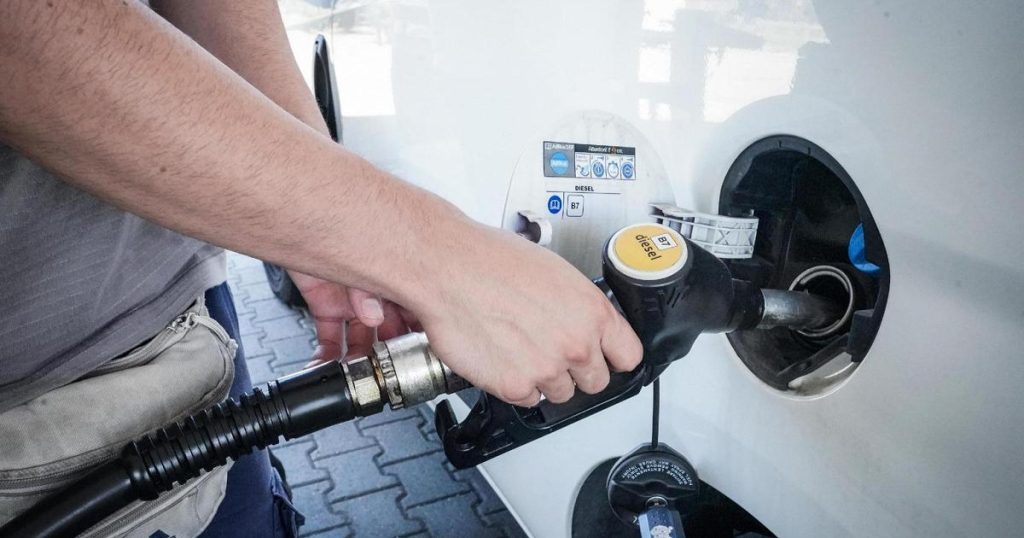The price of gasoline has reached 2.5 euros per liter at many gas stations in Italy, both on highways and in cities, with taxes accounting for nearly half of the cost. As Italians prepare for the spring holidays, where millions will be traveling, consumers are speaking out against the high prices of fuel. Recent data shows gasoline prices at 1.915 euros per liter and diesel at 1.812 euros per liter self-service, and 2.053 euros per liter for gasoline and 1.953 euros per liter for diesel at full service.
The consumer association Codacons has raised concerns about the impact of high gasoline prices during the spring holidays. They have created a national map highlighting the areas with the highest fuel prices. On April 12th, the highest price of 2.549 euros per liter for gasoline was found on the A21 Piacenza-Brescia highway. In Benevento, prices have surpassed 2.5 euros per liter, with prices reaching 2.572 and 2.55 euros per liter. The Ministry of Enterprises and Made in Italy reported a price of 2.854 euros per liter for gasoline at a station in Bari.
While there are some stations charging higher prices, the Ministry notes that there are thousands of stations offering lower prices than the national average. The average price currently stands at 1.805 euros for diesel and 1.91 euros for gasoline, with prices remaining stable. Codacons argues that the government should reduce fuel taxes immediately, as there are many stations selling gasoline at prices between 2.2 and 2.3 euros per liter. The president of Codacons, Carlo Rienzi, emphasizes the need for the government to take action.
The Center for Consumer Education and Research (Crc) reveals that over 1 euro from every liter of gasoline is paid in taxes in Italy, accounting for 56.4% of the total price. Taxes on gasoline in Italy are higher compared to the rest of Europe, with iva and excise taxes accounting for 56.4% and 52.4% of the price respectively. This means that taxes on gasoline in Italy are 0.945 euros per liter, higher than the EU average of 0.801 euros per liter. The government earns nearly 3.2 billion euros per month from fuel taxes in Italy, with 990.6 million from gasoline and almost 2.2 billion from diesel.
The increase in fuel prices results in higher government revenue, but also negatively impacts consumers by reducing their spending power and affecting the overall economy. The president of the Crc scientific committee, Furio Truzzi, highlights the indirect negative effects of high gasoline prices on household budgets and consumer demand, which can have harmful consequences for the national economy. It is suggested that the government should consider these factors when setting fuel tax policies to ensure a balance between revenue generation and consumer welfare.


